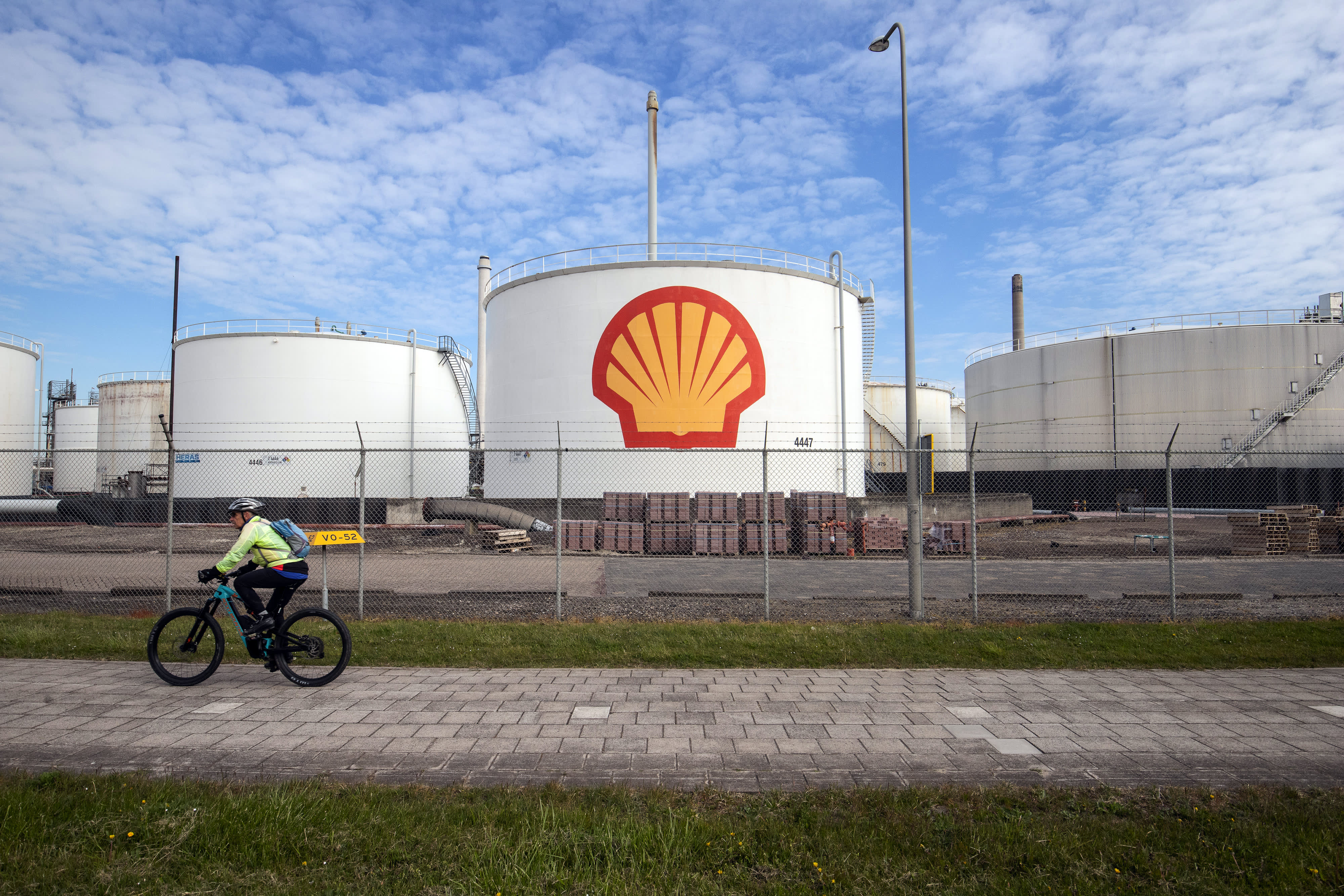
A cyclist passes oil silos at the Royal Dutch Shell Pernis refinery in Rotterdam, Netherlands, on Tuesday, April 27, 2021.
Peter Boer | Bloomberg | Getty Images
LONDON — A Dutch court on Wednesday ruled oil giant Royal Dutch Shell must reduce its carbon emissions by 45% by 2030 from 2019 levels.
That’s a much higher reduction than the company’s current aim of lowering its emissions by 20% by 2030.
Shell’s current climate strategy states that the company is aiming to become a net-zero emissions business by 2050, with the company setting a target of cutting its CO2 emissions by 45% by 2035.
CNBC contacted Shell to request a comment on the ruling.
The lawsuit was filed in April 2019 by seven activist groups — including Friends of the Earth and Greenpeace — on behalf of 17,200 Dutch citizens. Court summons claimed Shell‘s business model “is endangering human rights and lives” by posing a threat to the goals laid out in the Paris Agreement.
Under the Paris Agreement — a landmark deal adopted in 2015 and signed by 195 countries — nations agreed to a framework to prevent global temperatures from rising by any more than 2 degrees Celsius, although the accord aims to prevent global temperature rises exceeding 1.5 degrees Celsius.
At Shell’s annual general meeting last week, shareholders voted overwhelmingly in favor of the company’s energy transition plans — but, crucially, a growing minority rejected the strategy, insisting the oil giant needed to do much more in the fight against climate change.
Activist investor Follow This said at the time that the result was likely to mean Shell would have to revise its climate targets once again.
According to Reuters, the case is the first in which activists have taken a major energy firm to court to compel it to overhaul its climate strategy.
When the lawsuit was filed, a lawyer acting on behalf of environmental groups said the case would “raise the pressure” on other fossil fuel companies.




